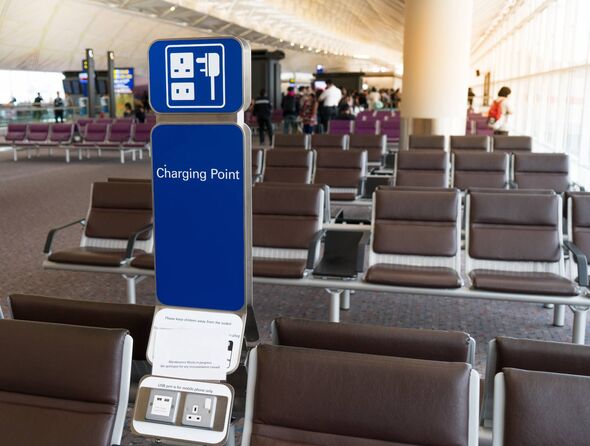TSA issues warning to airport travelers using public USB charging stations
The Transportation Security Administration (TSA) has issued a major warning to all travelers over the use of USB ports in airports.

The Transportation Security Administration (TSA) has sounded the alarm for travelers about the dangers of USB malware at airports. The agency took to social media to caution that devices could be compromised by scammers through malware-laden USB ports.
"In this technology age, cybersecurity has never been more important," TSA's Facebook post emphasized. "You've likely heard about things like email scams and social media scams (tip: don't accept that friend request from your buddy's 'new' profile), but today we want to share our two best tips for staying cyber safe at airports while you're traveling."
The TSA's post highlighted a specific threat: "Hackers can install malware at USB ports (we've been told that's called 'juice/port jacking')."

The agency advised, "So, when you're at an airport, do not plug your phone directly into a USB port. Bring your TSA-compliant power brick or battery pack and plug in there."
Travelers were also cautioned, "Don't use free public WiFi, especially if you're planning to make any online purchases. Do not ever enter any sensitive info while using unsecure WiFi.", reports the Mirror US.
DON'T MISS:
- Distance from Indy 500 to NASCAR race as Kyle Larson attempts 'The Double'
- Incredible hypersonic plane could cut London to New York flight time to 45 mins
- Plane passengers issued 'crucial' health warning as travel 'magnifies' issue
The TSA concluded with a note of thanks: "Thanks to our IT team for these tips!"
An expert has sounded the alarm concerning the government software deployed at U.S. airports recently. The TSA is now utilizing real-time facial recognition to verify identities at security checkpoints, yet experts indicate that privacy-conscious travelers may opt out.

Travis LeBlanc, an attorney with experience on the Privacy and Civil Liberties Oversight Board, emphasized the advantages of refusing facial recognition. "You don't have to submit your picture to the government for the government to scan it and store it under their rules," he explained.
Data privacy specialist Jennifer King expressed fears over potential surveillance aspirations: "I'm sure that the dream of enforcement agencies would be to be able to track people in real time based on something like facial recognition."
King further stated that the TSA's plans for the collected data remain somewhat undefined. However, the agency reassures that the data is not employed for continuous monitoring, stating that once an ID is confirmed, images are not retained, aside from limited testing scopes meant to assess the system's efficiency.

A TSA spokesperson clarified to HuffPost, "A real-time picture simply means that an image is taken at the kiosk and that 'live' photograph is matched against the image on the identification credential."
